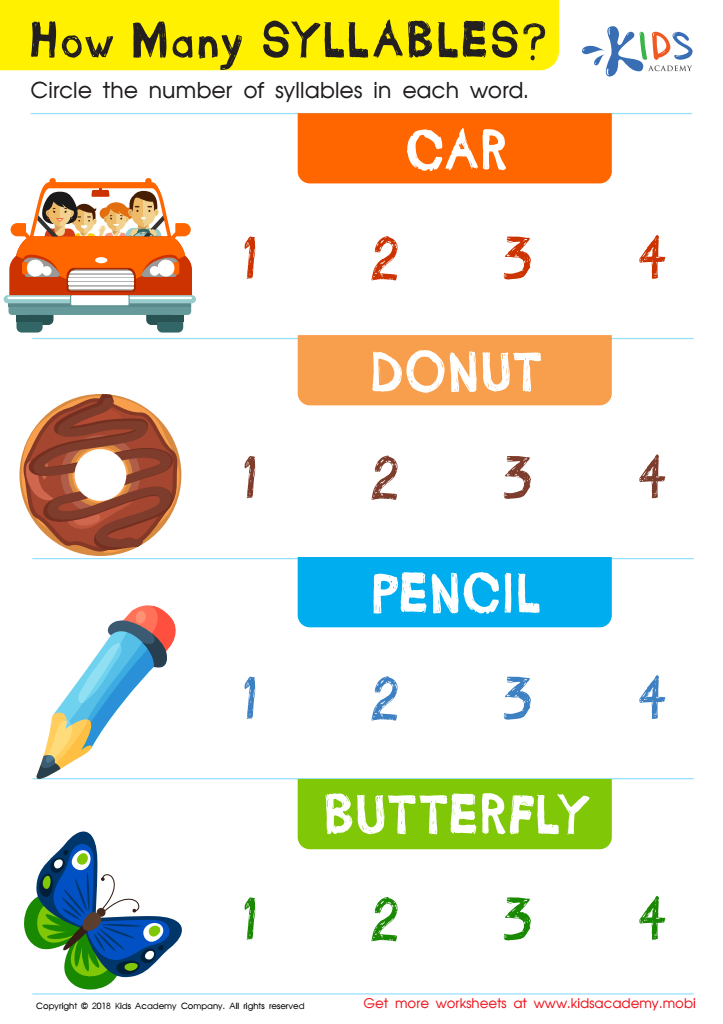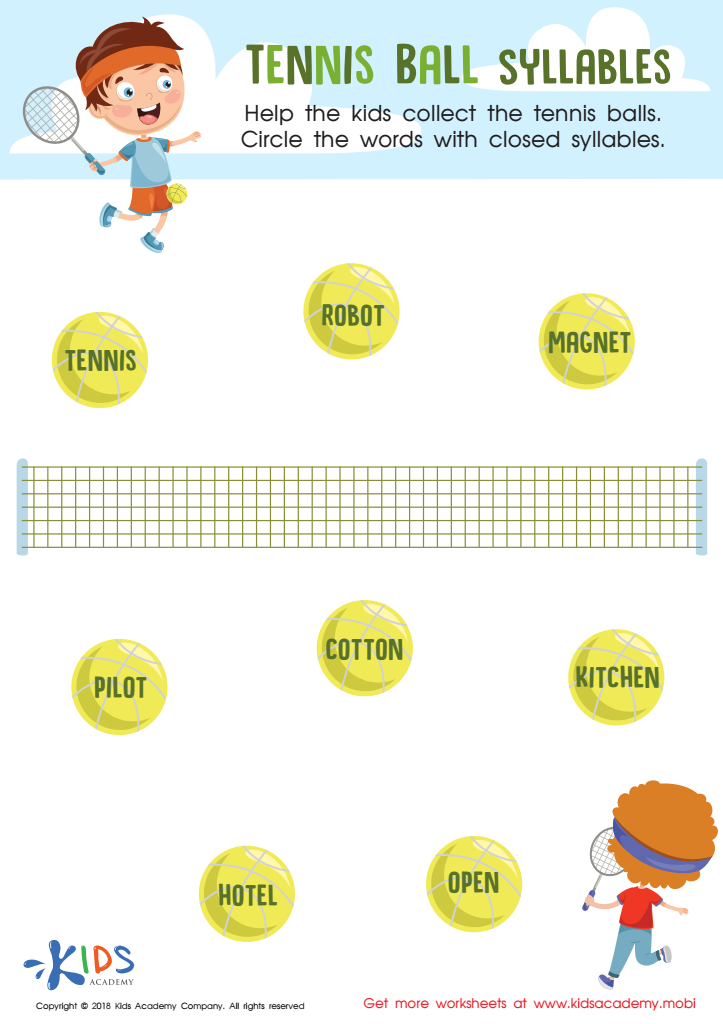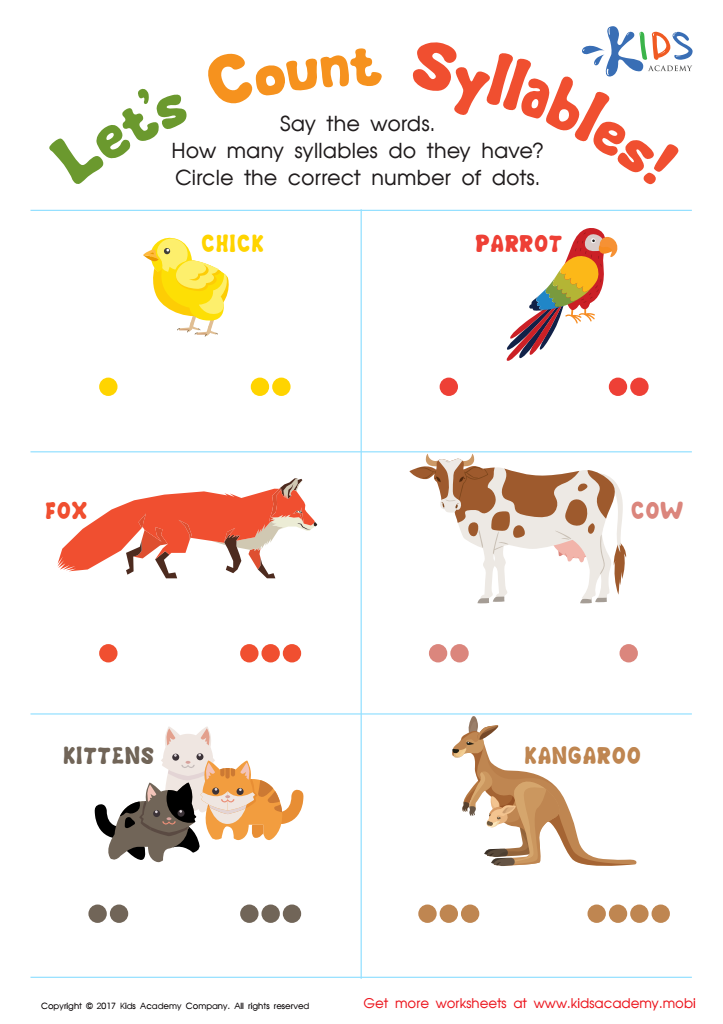Phonological awareness Normal Alphabet Worksheets for Ages 5-8
3 filtered results
-
From - To
Boost your child's reading skills with our Phonological Awareness Alphabet Worksheets for ages 5-8 at Kids Academy! These engaging worksheets help young learners deepen their understanding of phonetics and the alphabet through interactive exercises. Ideal for early readers, each worksheet focuses on recognizing, segmenting, and blending sounds, fostering essential literacy skills. By practicing with these well-designed activities, kids will build a strong foundation in phonological awareness, preparing them for future reading success. Perfect for both classroom and at-home learning, our worksheets are a fun and effective way to support your child's phonological development. Download and start learning today!


How Many Syllables? Worksheet


Tennis Ball Syllables Worksheet


Lets Count Syllables Worksheet
Phonological awareness, an understanding of the sound structure of language, is pivotal for children aged 5-8 as they embark on their reading journey. This foundational skill encompasses the ability to recognize and manipulate sounds in words, such as rhyming, alliteration, and segmenting words into individual phonemes.
Parents and teachers should prioritze phonological awareness because it is a critical precursor to reading success. Without this skill, children can struggle to make the connection between letters and their corresponding sounds, otherwise known as phonics. For instance, understanding that the word "cat" consists of three distinct sounds (/k/ /a/ /t/) enables children to decode words more efficiently.
Early phonological awareness activities, like singing rhymes, clapping out syllables, and playing sound-matching games, lay the groundwork for proficient reading and spelling. These activities are not just educational but also fun, engaging children in a playful manner while solidifying essential literacy skills.
Moreover, a strong foundation in phonological awareness has been linked to better reading outcomes and academic performance. Children who develop these skills early are more likely to become confident readers, which in turn impacts their overall learning experience and enthusiasm for education. Thus, fostering phonological awareness is a key investment in a child's future academic success.

 Assign to My Students
Assign to My Students
















